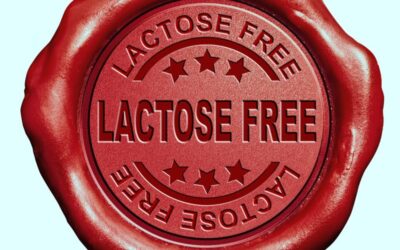Irritable bowel syndrome (IBS) is a common gastrointestinal disorder that affects millions of people worldwide. It is characterized by a variety of symptoms, including abdominal pain, bloating, constipation and diarrhoea. These symptoms can be unpredictable and often make it difficult for people with IBS to live full, productive lives. There are many treatment options ranging from medication to lifestyle changes, including diet and exercise. I’ve written extensively on various treatment options, so visit these blogs for more specific information. Many people ask ‘Can probiotics improve IBS symptoms?’ Read on for answers to many common questions.
What are probiotics?
The human body is a complex ecosystem, teeming with trillions of micro-organisms that play a crucial role in maintaining our health. Modern life can have a negative impact on these micro-organisms and gut health. Overuse of antibiotics, dietary and lifestyle changes alter the internal environment of the gut, called the microbiome. As the microbiome supports important bodily functions, an imbalance can lead to a range of gastrointestinal disorders, including IBS. Probiotics can help restore this balance in the gut. Probiotics are live micro-organisms that research shows can have significant health benefits. They are found naturally in fermented foods, but can also be taken in supplement form.
Which foods contain probiotics?
Many fermented food products, including some yoghurt and sauerkraut, contain excellent sources of probiotic bacteria. Food sources contain other nutrients that help the probiotic bacteria work, with most probiotic foods also having other health benefits. For example, yoghurt can improve your gut, bone and heart health.
However, some probiotic-rich foods can contain other substances (high levels of sugars called FODMAPs) which can make IBS symptoms worse. So, if you’re suffering with IBS symptoms, seek the advice of an IBS Dietitian who can advise on the best treatment plan for you before commencing probiotics.
When would probiotics be useful?
Probiotic foods or supplements can be helpful for a variety of conditions, including: digestive problems; vaginal health; skin health; urinary tract infections; good immunity; and mental health. Research shows that probiotics can also help restore the good balance of gut bacteria following a bout of gastroenteritis, after taking antiobiotics or a period of dietary restriction. However, it’s important to talk to your GP or another health professional before taking probiotics, as they may not be safe for everyone.
How do probiotics work?
Probiotics work by restoring a natural balance to the gut microbiome (the community of bacteria that lives in the gut). They are often referred to as “good bacteria” because they can help to improve your gut health. Probiotics work in a number of ways. They can help to:
- Increase the number of beneficial bacteria in your gut
- Crowd out harmful bacteria
- Produce substances that help to protect your gut lining
- Strengthen your immune system
Probiotics and IBS
The gut microbiome plays an important role in digestion, nutrient absorption and overall health. When the gut microbiome is out of balance, it can lead to a variety of health problems, including IBS symptoms. Some foods are known to trigger symptoms in some people, these are often referred to as FODMAPs. With knowledge and skills, an IBS Dietitian trained in FODMAPs can help you navigate a low FODMAP diet to help you identify any food triggers for your symptoms. The low FODMAP diet is based on a great deal of research and has been shown to improve symptoms in over 75% of IBS sufferers. A number of studies have also found that probiotics can aid reduction of IBS symptoms.
Which probiotic supplements should I take?
There are many different types of probiotic supplements available, but it’s important to choose a strain that has been shown to be effective for IBS symptoms. When choosing a probiotic supplement for IBS, look for a product that contains a variety of strains of bacteria and that has a high CFU count. CFU stands for colony forming units and is a measure of the number of live bacteria in a supplement. A higher CFU count means that the supplement is more likely to be effective. It’s also important to take probiotics regularly in order to see results. Most people need to take probiotics for at least 4-8 weeks before they start to see improvement.
Some of the most common probiotic strains used for IBS include:
- Lactobacillus acidophilus
- Lactobacillus plantarum
- Lactobacillus rhamnosus
- Bifidobacterium bifidum
- Bifidobacterium infantis
It’s important to note that the market for probiotics is vast and that you are able to source probiotics from foods. The probiotic industry is not regulated in the same way as medicines, so be wary of unrealistic health claims. And remember, everyone responds differently to probiotics as our microbiome is unique to us.
How much should I take and for how long?
The recommended dose of probiotics for IBS varies depending on the strain. However, most recommend doses of 30-40 billion CFUs per day. Follow the manufacturer’s advice on dose, as some will suggest one per day, whilst others advise two per day. If the advice is for two per day, try just one for the first few days before stepping up the dose. In this way, your body will become more used to the probiotic.
The latest research shows that although probiotics are safe for longterm use, there is little benefit in taking for longer than 2 months. By this time, the probiotic should have restored the microbiome’s balance.
When do I need to see my doctor?
If your bowel habits change suddenly, you have blood in your stools or you have sudden weight loss it would be sensible to see your doctor as soon as possible. If you’ve had IBS symptoms for some time, then your doctor may suggest some investigations to rule out other causes for your symptoms. See other FAQs about IBS symptoms.
So, can probiotics improve IBS symptoms?
Well, taking probiotics is one treatment option to improve IBS symptoms. It may not necesarily address the root cause, so other options such as the low FODMAP diet should be explored. Ensure that you check with your GP and explore other causes for your IBS-type symptoms before making any drastic changes to your diet and before commencing probiotics.
Change your life in just three sessions
Need help to manage your IBS symptoms? As a FODMAP Dietitian, I’m based in Cardiff, but work with IBS sufferers across the UK through online sessions. The vast majority of my clients have found that only three sessions are needed before they feel confident to move forward on their own. I will send you booklets, which have an extensive list of all the foods you can eat on the low FODMAP diet. I’m available for advice and support between sessions. Find out more about my IBS symptoms relief package. I offer a free initial telephone call for you to decide whether the low FODMAP diet is right for you. So give me a call or fill out the contact form.
Many of my clients say that working with a specialist IBS dietitian has been life-changing, and are finally managing to live more comfortable lives.
Read about previous client experiences and to help you decide it this is the right approach for you, see my webpage about IBS treatment.
DISCLAIMER: This blog provides general information and does not constitute medical advice. Always consult a healthcare professional before taking probiotics or making significant dietary changes, especially if you have IBS or other underlying conditions.




